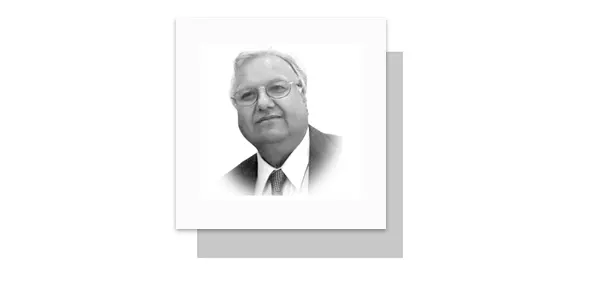HOW did the political movement of 1977 turn into an ideological movement? Answer to this question reveals that it was due to just one person that was Mujeeb-ur-Rahman Shami. The incident is quite interesting. On the day the first procession of this movement was to take place, Major Saeed Tawana suggested Shami sahib that the leaders of the Pakistan National Alliance (PNA) should march with the Holy Quran around their necks, which would invigorate the movement. He liked this suggestion, and he took it to Asghar Khan, who was to lead the first procession in Lahore. Upon hearing the suggestion, Asghar Khan pondered for a while and then agreed. As Asghar Khan stepped out of the famous Neela Gunbad mosque, Mr. Shami, advanced and placed the Holy Quran around his neck like a garland.
This incident set a trend. Following this, any leader or worker of PNA who came out to get arrested did so. Why did Mr. Shami do this? I didn’t need to ask him this question. A few years ago, Mr. Shami visited Karachi and stayed at his brother’s house. He learned that I was unemployed at that time; he kindly called me over, gave me valuable advice and did whatever he could to help. Along with this, he also advised me to recite Darood Sharif frequently.
In the early days of Bhutto’s era, he was arrested along with some companions for criticism and a case was filed against him in a martial law court. Shami Sahib went to the court and sat down while lighting a cigarette. When the military judge of the court threatened him with contempt of court, he replied, “I neither consider this place a court nor accept martial law.” Then he shouted the slogan, “Down with martial law.”
This is from my early childhood, but two or three years later, around 1974 the Khtam e Nabwat Movement was started. This was a time of press restrictions and censorship, but even during this stringent period, there was a weekly publication that voiced this movement. This weekly was Mujib ur Rahman Shami’s “Zindagi”. From these events, I understood that Mr. Shami is a person whose heart is filled with the love of the Prophet Muhammad (PBUH) and this love empowers him to stand firm against all oppression and tyranny. Undoubtedly, he is a brave man whose every headline and sentence written by his pen became a slogan for Pakistan’s national movements.
Why is such a person, who has been a voice for the nation’s aspirations and desires, being surrounded today? And there is no doubt that his belief, passion, ideology and thoughts have not changed. So, the question arises what had happened that he has to justify his faith and belief (Eman)? The answer to this question is not very difficult, but it is also not easy to articulate.
What is our problem today? Our problem today is that our tolerance has almost disappeared. Our method of disagreement is not through dialogue or reasoning; we now resort to matches or sticks and bullets. Here, disagreement means not a difference of opinion but restricting the right to life. For those who have strayed from the path of truth, instead of compassion and empathy according to the example of the Prophet Muhammad (PBUH), their fundamental right is taken away.
The demand is why someone does not acknowledge our law. If he acknowledges the law, why would he stick to his opinion; why not come to the path of truth? How can you demand a correct law from a person whom Allah has not given light? Regardless of who is responsible for this attitude and who is not, the tragedy is that this condition has scattered our national unity like a house of cards and weakened us. The remedy for this weakness lies in the teachings of the Prophet Muhammad (PBUH). Hate the sin, not the sinner, and to guide the evildoer to the right path through good conduct.
Contrary to this, our approach is that by kindling the flames of hatred, we are distancing people from us. Hazrat Ali Hujwiri wrote in “Kashf-ul-Mahjoob” an incident of Hazrat Hassan (RA) where a Bedouin came to his door and started cursing. He went inside, brought out some gold coins, gave him and said, “My dear! This is all I have now, if I had more, I would have given that too.” This good conduct changed his heart and he said that indeed you are the descendant of the Prophet; anyone else would have torn me to pieces. Isn’t the way of Imam Hassan a model for us to follow?
—The writer is contributing columnist.










